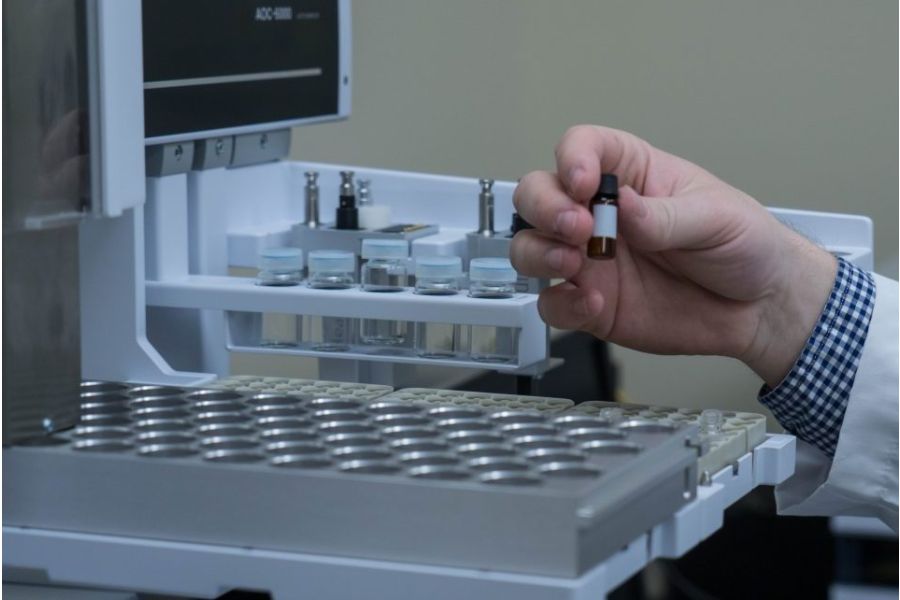What Patients Need to Know About Regulated Texas CBD Products Versus Buying Online From Out-of-State
Compassionate Cultivation believes that the old adage “you’re only as good as your last performance” also should be applied to cannabis-based medicine: You’re only as good as your last lab-testing results.
The commitment Compassionate Cultivation has to consistency is exemplified by our rigorous testing regimen, which adheres to state regulations mandating acceptable cannabidiol (CBD) and THC content levels. Simply put, products must contain at least 10 percent CBD and no more than .5 percent THC.
We're also committed to transparency with our products, and have made our cannabis lab testing results public.
Unlike some unregulated products sold online, we also provide a comprehensive breakdown of potency and ingredients in our product labeling, and test each production batch for microbials, heavy metals, residual solvents and pesticides for quality assurance to ensure patient safety. Compassionate Cultivation does not use pesticides in its cultivation facility, and products are made with a solvent-free, CO2 extraction process.
Another issue of critical import to patients is the shaky legal status of online CBD oil. Anything that is shipped into Texas containing detectable amounts of THC is illegal, according to the Texas Department of Public Safety, which oversees the state’s Compassionate Use Program. Patients with intractable epilepsy who aren’t utilizing the state program are at risk of losing access to medicine they depend upon at any time.
“Meeting patients’ needs with our reliable, consistent CBD medicine is our top priority,” says Morris Denton, CEO of Compassionate Cultivation. “Safety and transparency are paramount.”
Federal agencies have been involved in monitoring CBD companies. Since 2015, the U.S. Food & Drug Administration has been randomly testing the chemical content of cannabinoid compounds and has issued more than 40 warning letters to online companies selling cannabis-infused products the agency said did not contain the purported amount of CBD. In addition, a recent study by Penn Medicine published in the Journal of the American Medical Association found that nearly 70 percent of CBD-based products being sold online are mislabeled, and actually contain significantly higher or lower levels of CBD than is being reported—which is extremely problematic for consumers who require precise dosing.
“Unfortunately, there are a lot of companies out there making claims about what’s in their bottles of CBD-infused tinctures and oils,” says Denton. “The reality is that the cannabinoid content is not always accurate, and the price for these unregulated CBD products is often inflated to reflect those falsehoods. That’s why it’s especially important for consumers to evaluate what they’re buying.”
The types of cannabinoids in cannabis oil products also deserve patient scrutiny. Research is being conducted on the potential benefits of whole-plant formulations to answer the question of whether an “entourage effect” exists between CBD and THC; several promising studies have shown that non-THC cannabinoids can have a neurochemical effect on cannabinoid receptors in the central nervous system, and that CBD may mitigate the psychoactive effects of THC by blocking the cannabinoid receptors CB1 and CB2.
But that hasn’t stopped CBD producers who sell unregulated products online with unlisted THC content from trumpeting dramatic results, a situation that can mislead consumers—not to mention it often bolsters prices based on claims.
As for price comparison, the generally accepted calculation is cost per milligram of CBD, dividing the price by the number of milligrams—for instance, a $200 bottle of Compassionate Cultivation tincture containing 1,500 mg of CBD costs approximately 13 cents per milligram. Keep in mind, though, that this gives you an apples-to-apples comparison and doesn’t take at all into account the quality of the product.
“We will sell only those CBD-infused products whose efficacy is supported by legitimate, peer-reviewed clinical studies and screened properly with thorough testing,” Denton says. “It’s critical that we provide our patients medicine that will meet their needs effectively.”
What Patients Need to Know About Regulated Texas CBD Products Versus Buying Online From Out-of-State

Search the blog
My Wish List



